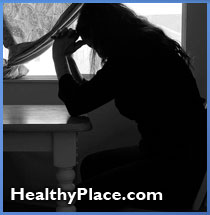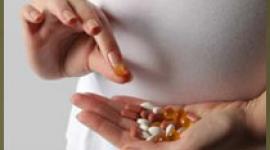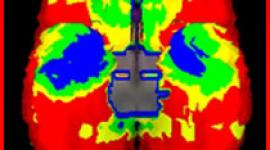What Causes Clinical Depression?
 There is some debate concerning the causes of depression. On the one hand, it is considered a physiological disorder of the brain. Signals are sent through the brain--and in fact the entire nervous system--by special chemicals called neurotransmitters. There are many of these, but the ones which seem to have the greatest impact on a person's mood are serotonin, norepinephrine, and dopamine. Depression appears to involve a reduced amount of one or more of these, hindering brain signals and in turn causing the various symptoms of depression. MRI's and brain tissue samples of depressed patients shows that these neurotransmitters are below normal.
There is some debate concerning the causes of depression. On the one hand, it is considered a physiological disorder of the brain. Signals are sent through the brain--and in fact the entire nervous system--by special chemicals called neurotransmitters. There are many of these, but the ones which seem to have the greatest impact on a person's mood are serotonin, norepinephrine, and dopamine. Depression appears to involve a reduced amount of one or more of these, hindering brain signals and in turn causing the various symptoms of depression. MRI's and brain tissue samples of depressed patients shows that these neurotransmitters are below normal.
While this is true, however, there are usually circumstantial influences as well. Depression almost always follows some upsetting or terrible event in someone's life (it can come immediately or after some length of time). Cases in which people become depressed solely because of brain physiology, are exceedingly rare. Depression also goes hand-in-hand with low self-esteem, which is often an integral part of the depression (in other words, it can be a symptom, or a cause, or even both).
Thus, it's evident that both physiology and circumstance cause depression. What is unknown is, the relationship between them. Do bad things happen to people, making them sad or distraught, which reduces their neurotransmitters, and allows "true" depression to set it? Or, are the neurotransmitters already reduced, so that when something upsetting happens, it triggers a "true" depression?
There's no clear answer to this, yet. At the moment, most in the psychiatric community lean toward the first explanation.
In any case, it's important to note that no one is to blame for depression. In many--but by no means all--cases, depression results from harmful childhood experiences. However, it is nonproductive and even incorrect to "blame" one's parents, family, friends, etc. for the depression. Why? Because many people have unpleasant childhoods, but not all of them develop depression. It is not the sole cause. Depression can also follow divorce, bereavement, etc. but this does not mean that these things "caused" the depression all by themselves. There are a great number of factors, including physiology (which I've already mentioned). Once again, depression is an illness. If you got the flu, would you blame it on someone else? Of course not, that would be silly! Depression is exactly the same.
next: What To Do If You Are Depressed
~ back to Living with Depression homepage
~ depression library articles
~ all articles on depression
APA Reference
Staff, H.
(2008, December 1). What Causes Clinical Depression?, HealthyPlace. Retrieved
on 2026, March 2 from https://www.healthyplace.com/depression/articles/what-causes-clinical-depression



